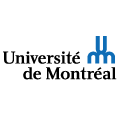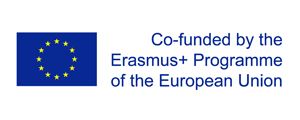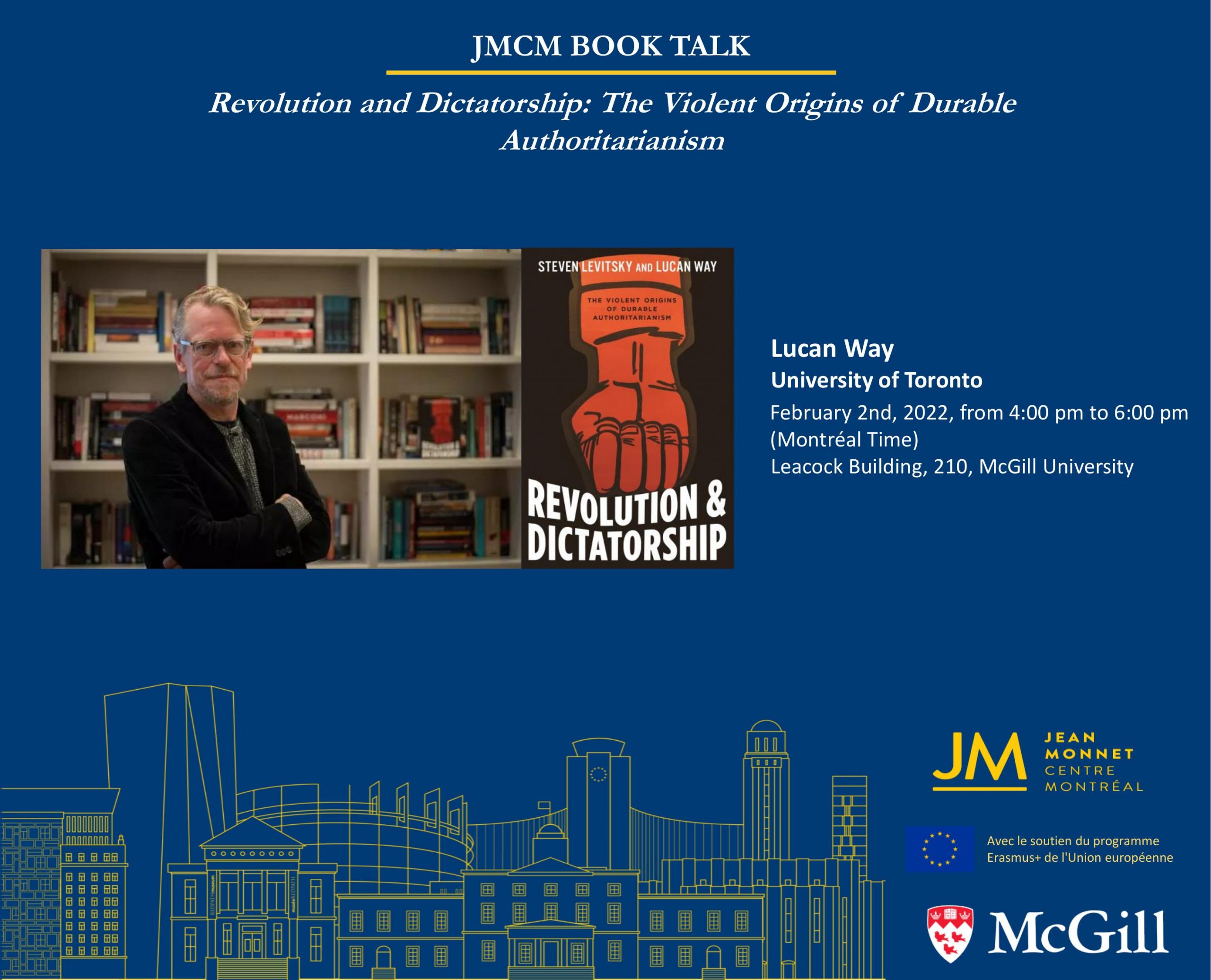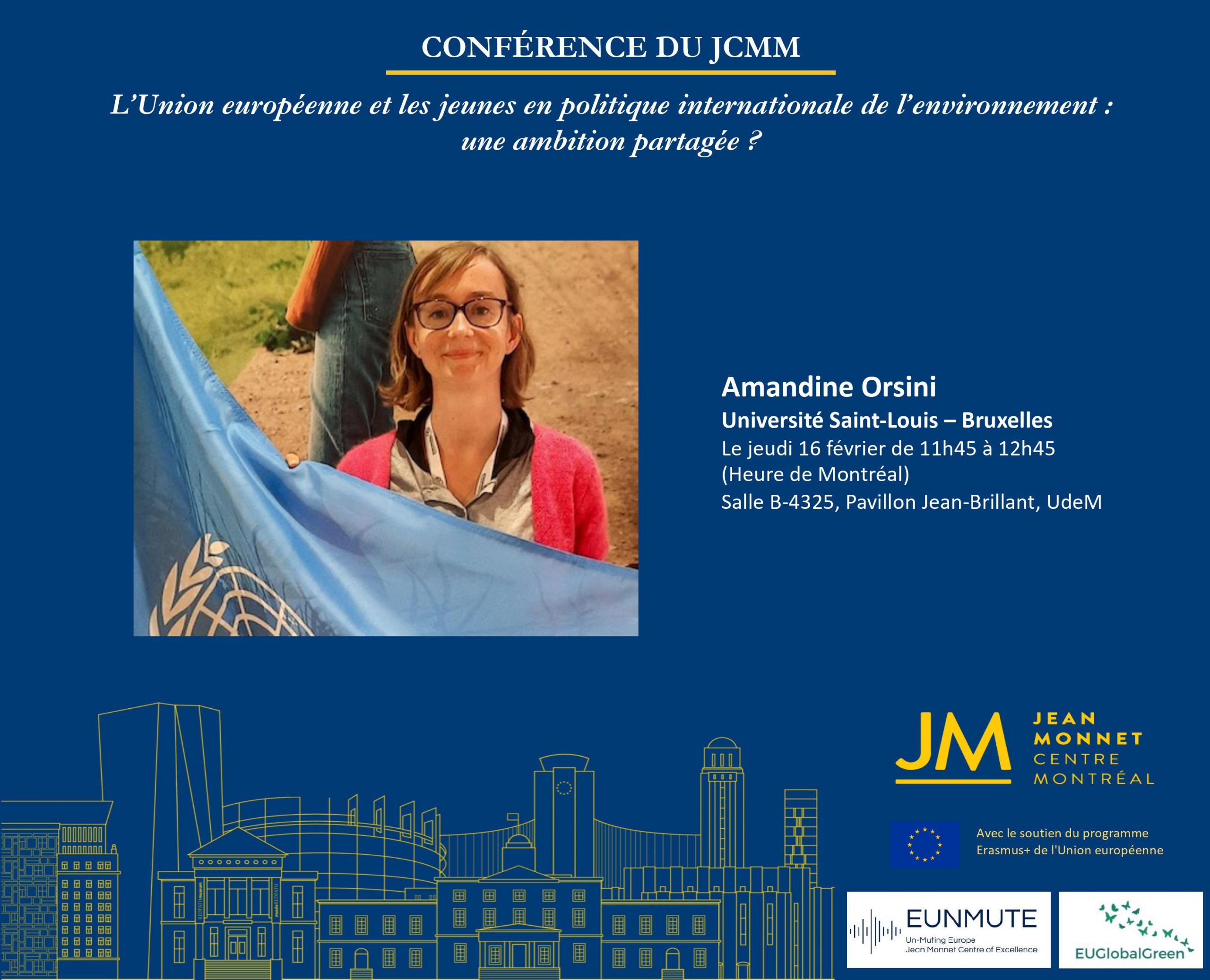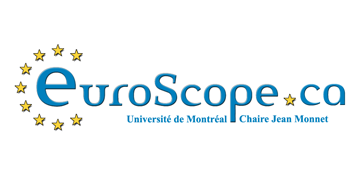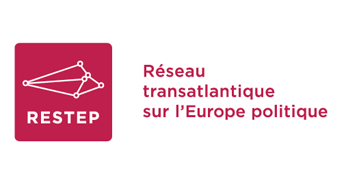RevUE de la conférence de Milada Vachudova proposé par Yassine Khadir
As the second guest of the 2022 Speaker Series at Jean Monnet Centre Montreal, Milada Anna Vachudova, a Professor of Political Science at the University of North Carolina Chapel Hill, delivered a conference titled: Reviving EU Power: Enlargement and Liberal Democracy in response to Russia’s War against Ukraine. Professor Vachudova started the conference insisting on the fundamental importance of the coupling of the European Union with the concept of liberal democracy. Liberal democracies have historically been linked with the European Union, but it does not mean that each country will naturally evolve towards more liberalism over time.
Concerning the Russia-Ukraine conflict, the Professor noted that it has been a positive in terms of EU / NATO sentiments but has been at the cost of tremendous human life. The ways in which the war has made clear the competition between the different types of regimes has pushed levels of unity inside Europe in ways we have not seen before. Anti-EU movements have still been on the rise inside the Union, but they have not made moves to exit the union; Brexit having a considerable impact on the idea.
Professor Vachudova used Hungary as an example of where the Prime Minister of office, Victor Orban, has wanted to have economic integration with the European union, while at the same time eliminating the ways in which it is scaffolded by liberal institutions. Furthermore, Vachudova argued that the movement seen in Europe right now, from the left or the right, can be characterized as Ethno-Populism. They tend to cooperate with other ethno-populist groups and have as target the European Union, NATO, Cosmopolitan Elites and domestic groups such as the LGBTQ, feminists and minorities. This movement, according to Vachudova, would explain why Hungary and Russia have good relations even though there are important historical conflicts between the two nations.
In relation to EU power and enlargement, Professor Vachudova notes that the power of the European Union does not come from a standing military, it comes from normative, market and civilian power. These types of powers should be wielded in a way that reaffirms the liberal democracy cause because if they do not, it would be difficult to move forward with the enlargement of the European Union.
Professor Vachudova then answered a question on the impact of Brexit on EU enlargement, noting that it has had three main impacts. First, the British were important advocates of enlargement of the European union and that their absence will be felt. Second, it has also stopped any talks of other members leaving the EU, due to the tremendous difficulties the British now face after Brexit. Third, the Professor thinks that it will, in the medium term, be positive because it will allow France and Germany to take more agency of the EU foreign policy.


